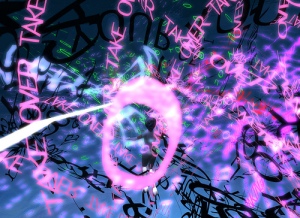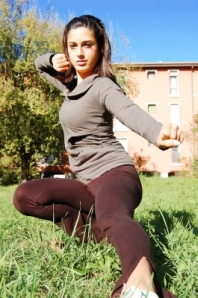I used to part of an on-line writing community. In some ways it was great. There were published authors available to give writing advice and a place to post snippets of your manuscript. All kinds of people lingered on this message board: spiritualists, atheists, lawyers, scientists, musicians, and even one sailor if I remember correctly. There was a place to post your query letter for critique and places for publishing advice. Most of us were trying to turn out one brilliant piece of writing. Since I hadn’t found my writing group yet, this was a perfect alternative.
One of the best things about this community was that it gave me a huge amount of exposure to amateur writing. Plenty of people would find this site, post the first page (or sometimes chapter) of their work in progress and ask for a critique. For a while, my goal was to write three critiques a day. Reading other people’s critiques and doing analysis of my own really helped me to sharpen my writing skills.
The first amateur mistake that really started to stick out was wordiness.
Amateur writers often want to strong-arm their readers into seeing their exact vision. They use too many words to describe a scene and then repeat themselves just to make sure the message was driven home. Really masterful writers give details that launch the writer’s imagination. Consider this paragraph from one of my early manuscripts:
Megan threw a hurried look over her shoulder and continued swiftly on. Not running. Everyone knew that the worst thing to do when you were being chased was to run. Speed walking. She glanced over her shoulder again. Those eyes, she thought. Red eyes. Adrenaline surged through her body like electricity, leaving her fingers stinging, and she looked for refuge. She hadn’t exactly seen her pursuers, save the eyes, but she heard their menacing calls. A high-pitched, terrifying, inhuman scream that seemed to summon more of them. There had been at least six sets of the glowing red eyes when last she had spied them over her shoulder and, judging from the sound of it, at least double that was behind her now.
Can you feel how forced it is? Megan is in a hurry. If you didn’t get that from the two clues in the first sentence, you might have figured it out in the clues in sentence three, four, and five. That’s me, trying too hard to set a scene. In doing so, I take a paragraph that should be fast-paced and manage to slow the progress to a crawl.
The things chasing Megan are forced, too. As a writer, I’m being mysterious and if done delicately, this can work. Just eyes and howling. But, what I do here isn’t delicate. I mention the eyes three times and their color twice. I belabor the howl in the same way. I want for the reader to hear the horrible sound I’ve conjured in my own mind so I pile the adjectives: high-pitched, terrifying, inhuman followed by the noun scream. Screams are high-pitched; I don’t need both words. “Terrifying” should be the impression the reader gets without being prompted. What I have left is “inhuman scream” which, if you think about it, does the job just fine,
These days, I’m better at reading my own writing with an eye for extra words. Even when I’m reading published books, I find myself wanting to yank a work here and there because I feel like a sentence would be stronger without it.
So what about you? Is there some early lesson that really struck a chord with you? Do you like to write wordy or are you a sparse writer? Do you think writing should launch the imagination or fill in all of the details?
I hope everyone has a quick Friday and a great weekend!










